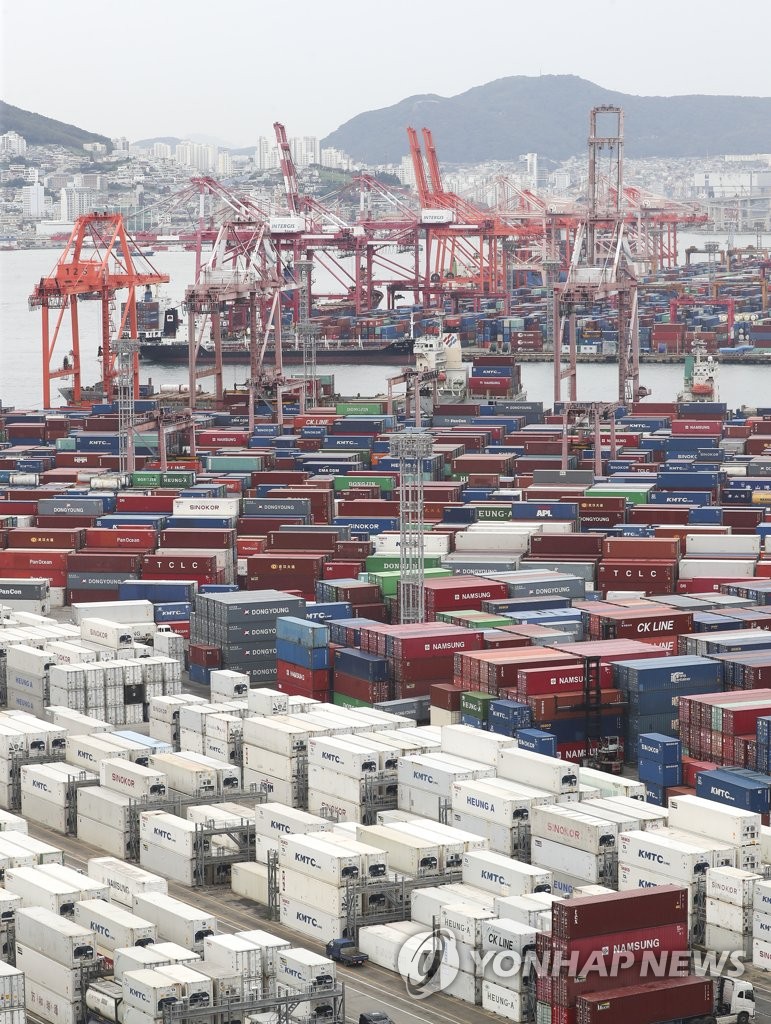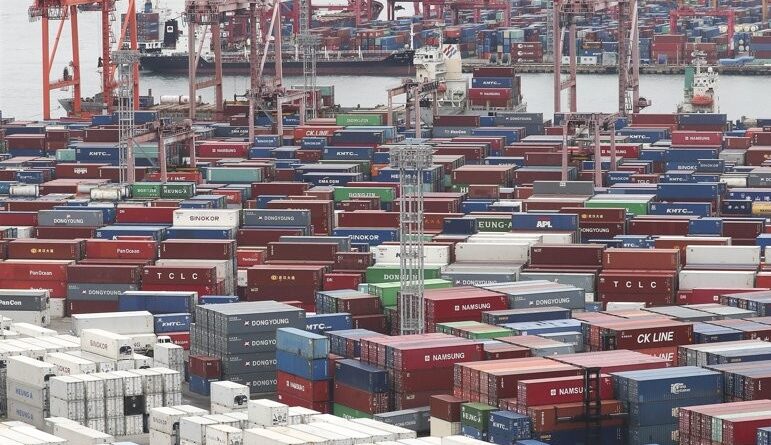S. Korea’s current account surplus plunges as goods balance turns red amid soaring import bills

SEOUL, Sept. 7 (Yonhap) — South Korea posted a current account surplus for the third straight month in July, but the surplus plunged as the goods balance turned red for the first time in about 10 years due to fast-rising import costs of energy and other commodities, central bank data showed Wednesday.
The country’s current account surplus came to US$1.09 billion in July, compared with a surplus of $5.61 billion posted a month earlier, according to the preliminary data from the Bank of Korea (BOK).
The July surplus was also much smaller than the same month a year earlier when the country logged a surplus of $7.71 billion, the data showed.
In the January-July period, the country’s cumulative surplus nearly halved to $25.87 billion from a surplus of $49.46 billion tallied the same period a year earlier.
The sharp decline came as the country’s import bills mounted at a faster pace than overseas shipments driven by high energy and commodity prices amid the global supply chain disruptions exasperated by the ongoing war in Ukraine.
The country imported $60.23 billion worth of goods in July, up 21.2 percent from a year earlier, while exports grew 6.9 percent on-year to $59.05 billion, the data showed.
Of inbound shipments, raw material purchases jumped 35.5 percent over the same period, with imports of coal and crude oil surging 110 percent and 99.3 percent, respectively.
As a result, the goods balance that tracks imports and exports posted a deficit of $1.18 billion in July. This marked the first time since April 2012 that the country saw the goods balance turn red.
The service account, which includes outlays by South Koreans on overseas trips and transport earnings, posted a surplus of $340 million in July, compared with a deficit of $490 million the previous month.
The turnaround stemmed in part from high freight rates despite a continued deficit from travel bolstered by eased anti-pandemic restrictions.
The primary income account, which tracks wages of foreign workers and dividend payments overseas, logged a surplus of $2.27 billion in July, down from the previous year’s surplus of $2.84 billion, the data showed.








